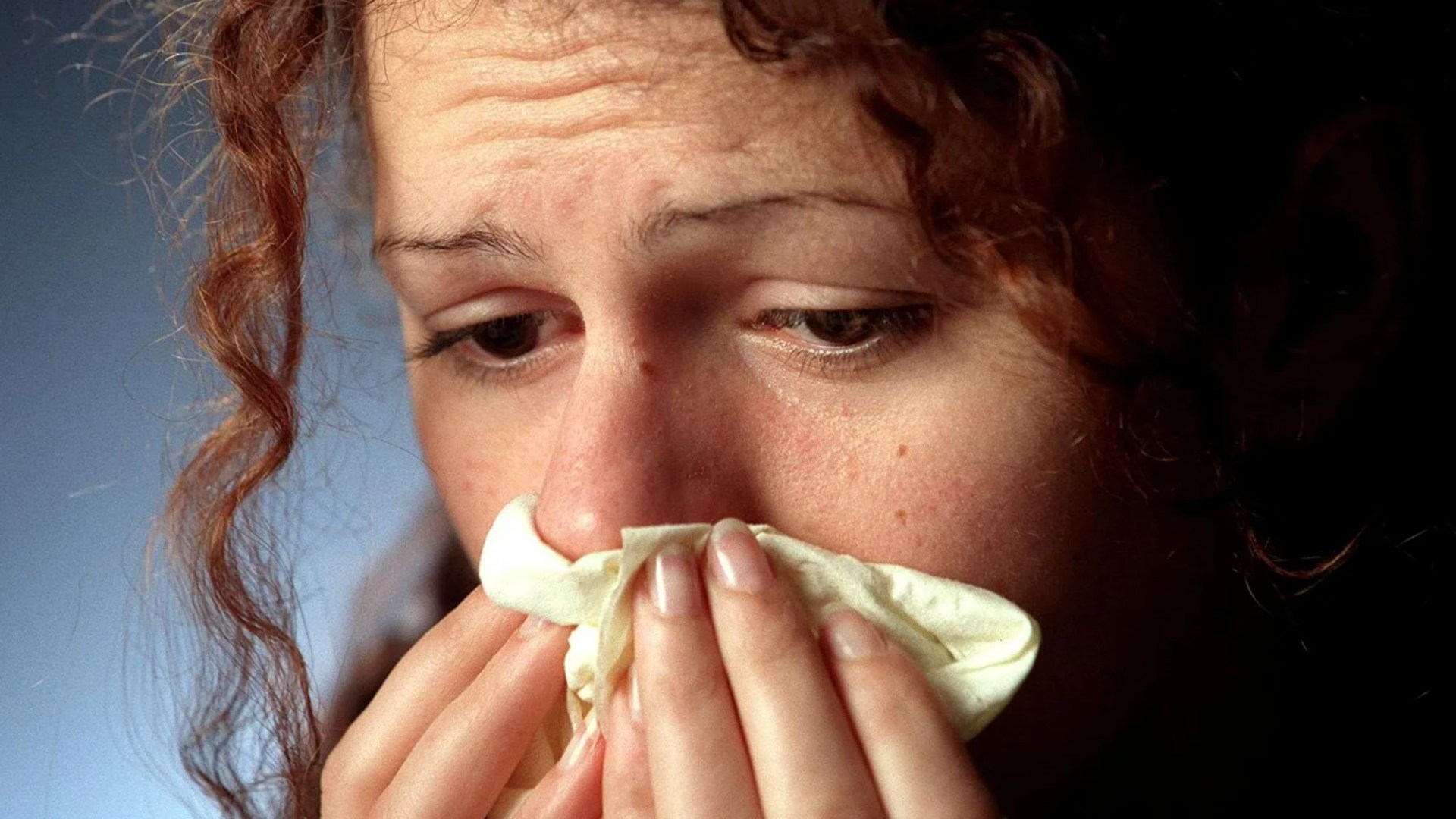HAY FEVER sufferers were sent reeling when the UK was hit by the “worst pollen bomb of the year” last month.
Sadly, this is isn’t the end of itchy, sneezy misery for many, as parts of the country are still set to see ‘high’ pollen levels later this week.

2

2
The South West, the West and East Midlands and the North East of England are set to grapple surging pollen counts on Wednesday, as will London, the South East and the South West on Thursday.
Whether you’re suffering with itchy eyes, a runny nose or incessant sneezing, have you ever stopped to think about what your symptoms mean?
And why yours and others’ symptoms seem to come on at different times of the year?
The Sun spoke to Boots Superintendent Pharmacist, Claire Nevinson, to get some answers.
Are there different types of hay fever?
Everyone can experience hay fever differently, whether it’s sensitivity in their eyes, nose or throat.
While there aren’t exactly different types of hay fever, there are different types of pollen that trigger symptoms.
And these allergens circulate at different times, depending on the time of year.
Claire told the Sun: “Pollen is a fine dust that disperses in the wind to reach other plants for pollination and start new plants.
“What many people don’t know is that there are different types of pollen that could trigger a hay fever reaction.
“Tree pollen, which is typically released in spring, grass pollen which tends to peak during the end of spring and the start of summer and lastly, weed pollen which typically peaks in the late autumn.”
The Met Office notes that there are around 30 different types of pollen that cause hay fever and it is possible to be allergic to more than one type.
Most people are allergic to grass pollen, while about 25 per cent of hay fever sufferers are affected to by tree pollen.
According to Allergy UK, someone with a grass pollen allergy will experience similar symptoms and require similar treatments as someone allergic to birch tree pollen, for example.
What do your hay fever symptoms mean?
Claire said: “If you suffer with hay fever symptoms, such as itchy and watery eyes, an itchy throat, sneezing and a runny nose, this may indicate that you are allergic to pollen.”
Simply put, your hay fever is is an allergic reaction that occurs when your immune system overreacts to allergens present in the air.
Your pollen allergy many cause allergic rhinitis, which is inflammation of the nasal lining caused by an allergic trigger.
It can also land you with allergic conjunctivitis, characterised by itching, burning, watering and red eyes as well as puffy eyelids.
There’s even a condition called pollen food syndrome, a hypersensitivity reaction to fruits, vegetables and nuts that can cause an itchy mouth, lips and throat.
Affecting two per cent of British adults, it’s thought to be linked to whether you’re sensitive to grass, tree or weed pollen, according to Allergy UK.
For example, you might experience food pollen syndrome when eating apples, apricots, cherries and kiwis if you’re sensitive to tree pollen, typically birch or alder.
Meanwhile, a grass pollen allergy could make you sensitive to melons, oranges, watermelons and dates.
Sun Health’s 14 tips to beat hay fever hell on a budget
SUMMER is here, which means the annual onslaught of dreaded hay fever symptoms is back with a vengeance.
Triggered when the immune system reacts to the allergen pollen, common hay fever symptoms include watery, itchy eyes, a tickly throat and a runny, congested nose.
Holly Shaw, a nurse adviser for charity Allergy UK, puts this down to “better diagnosis but also climate change, with warmer temperatures causing pollen seasons to start earlier and last longer”.
But if the go-to remedies of daily anti-histamine tablets, nasal sprays and balms from the chemist are not doing the trick, don’t lose hope, there are other hacks you can deploy.
From regularly showering and vacuuming the home to scoffing chocs, here are some tactics backed by experts not to be sneezed at . . .
- Wear wraparound sunglasses and a hat with a peak or big brim or go for a face mask
- On high pollen days, have a bath or shower and wash your hair. Change your clothes when you get home.
- Avoid mowing the lawn or raking leaves – ask someone else to step in.
- Try not to dry clothes or bed linen outside when the allergen count is high.
- Keep windows firmly closed, especially early in the morning and in the evening, when higher levels of pollen are released.
- Wipe down pets with a damp cloth, as they can bring pollen into the home. Also, think about keeping your dog or cat away from you if you can.
- Put Vaseline around your nostrils to trap particles before they can work their way up your nose.
- Take a few minutes each day to vacuum well, especially if you have deep-pile carpets. Hoover over upholstered furniture where particles may have spread through open window.
- Wipe down window panes and sills regularly.
- Wash your bedding once a week at a high temperature to remove any pollen that may have transferred from you and your clothes.
- Take vitamin D supplements. Research has shown they can regulate immune system cells that help to prevent allergic reactions.
- Experts say diets high in antioxidants such as broccoli, spinach, potato and carrot can help to ward off stuffy noses caused by hay fever.
- Dark chocolate can also help to reduce symptoms, it is said.
- If all else fails and you feel hay fever is ruining your life, or even causing asthma attacks, pay a visit to your doctor who could refer you to a specialist clinic
But you’re more likely to experience hay fever symptoms if you have other conditions or allergies like asthma, allergic dermatitis or eczema.
As your immune system is involved in your allergic reaction to pollen, how strong it is might also affect your symptoms.
“The body’s immune system can change over time, which can affect how it responds to allergens,” Samuel J White, senior lecturer in genetic immunology at Nottingham Trent University, wrote in The Conversation.
“This means someone who had severe hay fever symptoms in the past may experience milder symptoms as they get older.
“Indeed, hay fever can develop at any age, but it’s more common in children and young adults.
“As a person ages, their immune system may become less reactive to allergens, leading to a reduction in hay fever symptoms.
“Lifestyle factors such as stress, diet and exercise can affect the immune system and may contribute to the severity of hay fever symptoms.
“For example, stress can weaken the immune system, making it more susceptible to allergens.”
Finally, genetics can play a role too – you’re more likely to suffer from hay fever if family members of yours do too.
How to best treat each symptom
Claire said: “Hay fever symptoms differ for each person, but commonly there are three key areas where people are affected, the eyes, nose and throat.
“If people suffer from asthma, their symptoms may worsen during hay fever season.”
Taking antihistamine tablets can target your overall symptoms, but you may want to address them specifically.
“If people struggle with sneezing or a runny and blocked nose, they might consider using a nasal spray alongside antihistamines,” Claire explained.
“And to soothe dry, sore and watery eyes, allergy relief drops can be used to help.”
You can also opt for throat spray to soothe an inflamed throat, or a cooling eye compress to ease sore eyes and headaches.
If over-the-counter remedies are not proving effective, speak to your GP.
You can also choose to visit Boots Online Doctor, which offers a dedicated Hay Fever Treatment Service.
The best hay fever treatments on a budget
1. Allergy Eye Mist
If you hate the thought of drops, consider an eye mist which works in the same way – just spray it once or twice onto closed eyelids to to three times a day.
Try Optrex hay fever relief eye drops, 10ml – £6, from Tesco.
2. Cetirizine Allergy & Hay Fever Tablets
Products containing Cetirizine work to combat allergies without making you feel tired.
Superdrug’s pack of 30 tablets comes in at £5.45.
3. Hay Fever Relief Nasal Spray
For over-the-counter relief you could try Pirinase Allergy Relief Nasal Spray for Adults x 60 Sprays from Pharmacy2U, £4.98
Or for something on prescription, try Beclometasone Nasal Spray from ChemistClick, £5.49.
4. Vaseline
Dabbing a little bit of petroleum jelly around the edges of your nose works as a barrier to trap pollen before you breathe it in.
Get a 50g pot for £1.80 at Boots.
5. The Eye Doctor Allergy Hay Fever Compress
The Eye Doctor Allergy Hay Fever Compress has thermal dynamic fabric, which uses regulated evaporation to cool more rapidly.
It helps to reduce puffiness, swelling, itching, inflammation and even headaches, and comes with an adjustable comfy strap.
You can buy it at Superdrug for £8.99.
6. Throat spray
Ultra Chloraseptic Anaesthetic Throat Spray contains the active ingredient benzocaine which belongs to the group of medicines called local anaesthetics.
You can buy Ultra Chloraseptic Anaesthetic Throat Spray for £6 from Amazon




